SABATON | THE LEGENDARY TOUR 2025
HELLOWEEN | 40 YEARS ANNIVERSARY TOUR 2025
WACKEN 2025 | Samstag, 02.08.2025 2/2
WACKEN 2025 | Freitag, 01.08.2025 2/2
WACKEN 2025 | Donnerstag, 31.07.2025 2/2
Partner
Services
Statistiken
Wir
Interview mit Atlantean Kodex (23.06.2011)
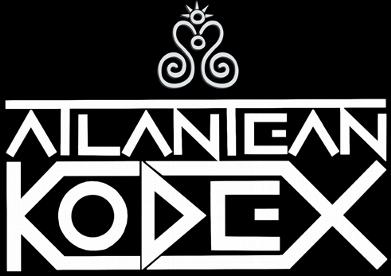
Im Folgenden lest ihr ein Interview mit Manuel Trummer von ATLANTEAN KODEX, das ich Ende 2007 gemeinsam mit meinem Kollegen Jim Raggi (er wartet auf zahlreiche Besuche unter www.lotfp.com) geführt habe. Fragt nicht, wo die deutsche Fassung steckt, denn ich weiß es nicht. Nichtsdestoweniger stehen die Aussagen auch heute noch für sich, also frohes Lesen.
German metal is strangely famous for its hamfistedness - chunky riffs devoid of finesse, singers that make a career out of actually being no singers at all (yes you pig-squealing Dirkschneiders and Boltendahls...) and a general awkwardness that is manifest in the lyrics and rhythmic infleibility. Whether you positively call this "rock solid" or not: be aware that there is more to come from Sauerkraut-country. Enter ATLANTEAN KODEX whose guitarist Manuel took some time to answer the questions Jim and myself put together with respect to his grandiose band, which taps into a fresh way of Solstice- and Bathory-worship - but what's most important is that ATLANTEAN KODEX enable the listener's individual approach to their music, meaning that they can deeply affect you in your present state of mind...despite the age-old lyrical themes. Manuel has some debatable views, but he definitely knows what he is speaking about - so sit back and listen up a bit.
You call this "The Pnakotic Demos". Define "demo" as you use the term here. Are these songs going to be re-recorded in a "final" (and presumably better) form later? If so, really, why should a listener care to buy this?
To me, a demo is a means of presentation for a band without record or distribution deal. People that buy a demo are able to get a first impression of a band. Even though two of the songs from "The Pnakotic Demos" are likely to be re-recorded for a full-length album ("Marching Homewards", "From Shores Forsaken"), this is the raw and original sound of the band. Many metalheads I know are most excited about the very first demos of a band, because what you get here is the undiluted and probably most energetic performance. You are closer to the essence of the music than it is the case with a professional studio production, where an external sound engineer maybe manipulates the sound.
The insert quips that "The Pnakotik Demos" are "underproduced": Explain this, please.
As you have said, it is actually a joke. If we had not been fully convinced by the sound, we would not have put the CD out. Nothing more to say about that - I am sure our fans have enough brains to get the irony here. With unlimited resources, we would have improved a little more on the drum sound and mastering, but in general, the result is very, very close to what we wanted. That is also the reason why we did not wait with the release. Firstly, we were satisfied with the outcome ourselves, and then, we got a dozen requests a day as to when we were going to release something at last. Thirdly, you can of course work on a CD without end and improve things, but then it would probably never come out. At a certain point, you have to put an end to it. We reached this point when we all thought that we had indeed created something great and had run out of money.
Both traditional metal and heathen circles like to blather about roots. Is it actually possible nowadays to trace back your existence to one distinct origin, considering how much everything got mixed up through the ages - from alleged "races" to musical crossover, the roots of which only few listeners seem to be aware of?
First of all, the concept of "race" is, from a biological point of view, bollocks. It is surely impossible to draw direct lines of continuity back to the Germanic tribes or the early Stone Age, as the Wicca movement does. You just have to be aware of the migration that has occurred throughout the last six thousand years even in relatively small areas. Even if you restrict your investigations to a secluded area like the Upper Palatinate, for example, you cannot find your individual roots. This is because the moving Germanic Tribes, Slavs or Francs have all left their marks, starting from the Mid Stone Age across the Celtic and Roman period along the Limes Wall.
So whenever today especially right wing and esoteric groups are searching for "Germanic roots", they are lying to themselves, as they completely neglect the results of all the research that has been done within the last fifty-two years. It's simply a fact now that the origins of Halloween are not found among the Celts, but for the first time in a French Benedictine monastery in the early Middle Ages. Similarly, Easter does not refer to the goddess Ostara, which has never existed; it simply alludes to the Old High German word for the red in the sky at dawn, as this has been the time of day for the Christian Easter Mass since the early Middle Ages. The Advent Wreath is no Old Germanic symbol of fertility, but an invention by a protestant scholar from the late 19th century.
Eventually, these fabricated lines of continuity are based on ideology anyway. People that claim such things have no interest in the truth, because it does not fit into their world. All the bands that keep posing with drinking horns, deem themselves Vikings or descendants of the old Germanic people due to their swilling mead and praying to Odin therefore are nothing but a huge carnival scene, just like the majority of "new heathen religions." They have a good show going on with costumes and stuff - but in the end, they are as heathen as the Pope.
You cannot transfer all that to heavy metal, though. We are still close to the origins of the music, and thanks to modern media these are perfectly preserved and well documented, which is not the case with so-called "heathendom". Reconstruction in that case happens through assumption, interpretation and fallacy that is owing to ideology. In terms of speaking about the roots of heavy metal, we might be guided by ideology as well, yet we can refer to the actual sources and have real proof at hand to support our argument. In this way, we can look at the roots and reconstruct the original stylistic devices, values and attitudes. We are able to recognize the roots and tell what innovation, change and continuity are - granted, though, that we treat the sources seriously and thoroughly examine tradition as well as the origins. Also, it helps to know about heavy metal history - and that is exactly where I see a crucial lack nowadays. It gets tricky as soon as people without a clue spread their ignorance through internet fanzines and forums. Suddenly, bands like Sunn O))), My Dying Bride or The Sword become doom metal, and the boundaries and lines of orientation within heavy metal culture start to blur. It gets arbitrary and disappears at a certain point. This is the reason why we need the knowledge and must be aware of the origins and tradition. If anything becomes metal, then soon nothing will be metal anymore.
How far can you develop your own style to not become boring, yet still remain true to the origins?
Why develop? This is the music we like to play and hear, and there is nothing to change about it or "develop" for the sake of "novelty". Bands that behaved this way were the ones that lost it for me because they changed until I could not connect anymore to their music. Why change anything that you want to be exactly as it already is?
Why do you call yourselves "Regressive Metal"?
We used that tag consciously to stress that we do not expand the boundaries of metal. We are not progressive, but go back to the roots. A large part of metal culture today has been alienated from the canon of heavy metal tradition through various crossover movements. We try to overcome this alienation by applying stylistic devices from the time before the great arbitrariness, which is mostly the 80s.
Unfortunately, I am no contemporary, as I got into metal only around 1988 or '89. If I wanted to specify the break between metal then and metal now, it would lie in the first half of the '90s. This is when the metal industry as we know it - the tastemakers of the mainstream - started to come about. Sure, majors have existed before, but they were clearly to be distinguished; you knew they stood outside the scene. The perfidy of this new metal industry that emerged in the early 90s lies in the labels, which indeed used to belong to the scene. Consumers therefore would be less critical with Nuclear Blast, Century Media and so on than with, say, Atlantic or Sony right from the start - even though in both cases, the principles and measures are the same. These labels were able to gradually model their audience after their wants by intentionally breaking down stylistic barriers and counting on mass appeal, all under the guise of ones own former scene credibility and by abusing equally credible bands from the old underground for their causes. The best example are all the death and black metal bands that jumped onto the gothic bandwagon to reach a larger audience: Cradle Of Filth, Tiamat, Sentenced, Samael. People swallowed it and still do! Instead of looking for information on their own, they are force-fed on a monthly basis by the mainstream press and industry.
"Regressive metal" for us is not about aping or imitation. Highlighting traditional elements is indeed what we are keen on, but there is still no other band at the moment that sounds like us. This is also why we are successful, as we have obviously tapped into a way that had been untrodden for some time. Although we combine traditional elements in a new way, we are still not modern. The term "modern" always implies an assessment with respect to zeitgeist and late fashion and whether something corresponds to these. An anachronism like ATLANTEAN KODEX surely does not.
Why does authenticity in contemporary metal always seem to equal intentional primitivism and the semblance that something is old? In return, there is the question as to whether a "modern" band - let us take Soilwork or Fear Factory - can be authentic as well in case you say that authenticity entails timelessness?
I cannot comment on these bands, since I do not know them, but of course, bands these days can be authentic, even when they are "modern" - yet only in case they do not cater to fashion, but happen to be a part of it without selling themselves. As far as the "semblance of the old" is concerned, I would differentiate a little more. It holds true, for example, in black metal. Mostly because this is a relatively young scene, there is the pressure of self-legitimisation, and this works best when you are clad in tradition. Labels naturally also work this way by putting nu metal bands with nice haircuts into vintage Maiden shirts. It is all about legitimisation through tradition - and if there is no tradition, then it is made up, quite the same as with neo-heathendom, in fact. As opposed to this, in the traditional metal scene, there is no need to make things seem as if they were old; the music is old by itself, and that is fine. The fans do not listen to it to appear authentic, but because they like it.
Your lyrics convey feelings of home as well as alienation. Alongside the imagery of battle and values such as honor, how easy is it to make ATLANTEAN KODEX the soundtrack for your next local Nazi disco?
I think there is one crucial element missing in our lyrics in order to allow a political interpretation: the idea of nation. All our texts prevent mentioning distinct time and place. Our feelings of alienation remain within the myth and describe distances that are not to be measured in years or miles, so it becomes hard to interpret the lyrics in such a way. You cannot help complete idiots, of course, but I do think that we are relatively safe from misinterpretation.
How can contemporary man identify with your mythical lyrics? If authenticity means that you can attach to the contents of music on a personal basis, then how can your band be authentic, as it only provides the listener with a background sound to raise his mead horn?
First of all, authenticity of both music and lyrics depends on the artist and not the recipient. He has to find himself within his own lyrics, not the listener. Secondly: Is it not rather the case that mythical lyrics are far more open to subjective interpretation than lyrics that tackle concrete, contemporary phenomena? Especially when such fictional texts are withdrawn from certain times, places and people and refer instead to general topics, archetypes and the myth as such, to which every human being on earth is connected, notwithstanding social standing or ethnicity.
To answer the first part of your question: I believe that it is particular to "contemporary man" that he can identify with our lyrics. Memory is always a present thing as well. The subject of alienation and the craving for an idealised past, which both permeate our music, are fascinating in a time where traditional family structures, religious beliefs and class belonging are gradually dissolved or constantly altered. We offer people the possibility, at least temporarily, to look back and glimpse at a golden age that offered straight lines of orientation and clear-cut values. Of course, we are aware of the fact that this golden age has never existed as the allegorical myth of Atlantis in which we present it. However, that is not the point. It is more important to open new horizons for people. Whether our lyrics are purely a means to escapism for some or personally helpful to others is secondary in this context. In any case, they are more than a backdrop for a drinking spree.
So is a differentiated reception of your music important to you, or do you not care at all about superficial listeners that just like what they hear?
It is surely more satisfying to me when people get deeper into what I have created, but I would not mind either if "Marching Homeward" was running at a metal party while having a beer. After all, it is about metal and not some poetry circle or discussion group. Metal these days has become far too intellectual anyway.
New Iron Age Records is run by a couple of members of the group, but the label also handles other bands. How do you prevent the conflict of interest in having limited resources to promote several bands when one of the bands is your own?
ATLANTEAN KODEX is treated exactly like the other bands on the label. Two of us are involved in both the band and the label, but that has no effect at all.
The songs on "The Pnakotic Demos" sound heavily influenced by Solstice's "New Dark Age", from the vocal style and melodies to the "special effects" noises. Take as much time as you need to tell us all about your personal listening relationship with "New Dark Age".
I am not sure how to describe my experience with "New Dark Age". Good music at least is highly evocative and inspires my imagination. Hardly any other record has ever brought such strong images onto my mind and impressed me that much. In fact, I was already taken into another world when I listened to it for the first time and the sound of the waves set in. The album is incredibly sublime and majestic, being ancient and archaic at the same time. You can literally grasp the atmosphere on it with your own hands. I see grey mountainscapes and deep, dark woods, eventually pictures of a past that seems long gone. The same effect I actually experienced only with the first Manowar albums, Bathory's "Twilight Of The Gods" and "Crystal Logic" by Manilla Road.
Ross the Boss guests on the recording. The other guests (Swanson, Tuozolli, Weinsheimer) make more sense as they are your contemporaries and co-conspirators in some ways … but how did Ross get involved? Do you think he offered something musically relevant, or is it just a "Oh my gosh, Ross the Boss - cool!" moment?
Of course, his contribution is relevant! His solo fits perfectly. "From Shores Forsaken" is taken onto a new level just because of it. It is totally like "Into Glory Ride" and does not get any better than this. But yeah, oh my gosh, Ross The Boss - cool!
Alle Reviews dieser Band:
- Atlantean Kodex - The Pnakotic Demos (2007)
- Atlantean Kodex - The Golden Bough (2010)
- Atlantean Kodex - The White Goddess (2013)
- Atlantean Kodex - The Course Of Empire (2019)




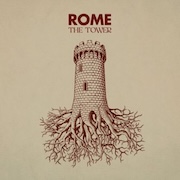




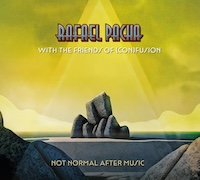

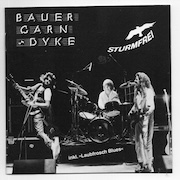





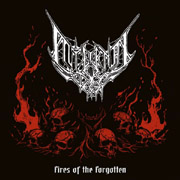
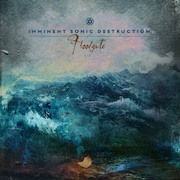



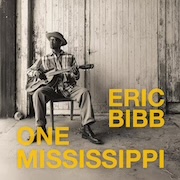
 Kontakt
Kontakt
